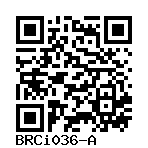HiPS-GLUT1DS1
BRCi036-A
General
Cell Line |
|
| hPSCreg name | BRCi036-A |
| Cite as: | BRCi036-A |
| Alternative name(s) |
HiPS-GLUT1DS1
|
| Cell line type | Human induced pluripotent stem cell (hiPSC) |
| Similar lines |
|
| Last update | 6th June 2024 |
| User feedback | |
Provider |
|
| Generator | RIKEN BioResource Research Center (BRC) |
External Databases |
|
| BioSamples | SAMEA115659957 |
General Information |
|
| * Is the cell line readily obtainable for third parties? |
Yes Research use: allowed
Clinical use: not allowed
Commercial use: not allowed
|
Donor Information
General Donor Information |
|
| Sex | male |
| Ethnicity | Asian |
Phenotype and Disease related information (Donor) |
|
| Diseases | A disease was diagnosed.
|
Karyotyping (Donor) |
|
| Has the donor karyotype been analysed? |
Yes
46XY
Karyotyping method:
Array CGH
|
Other Genotyping (Donor) |
|
| Is there genome-wide genotyping or functional data available? |
No
|
External Databases (Donor) |
|
| BioSamples | SAMEA115709862 |
Ethics
| Has informed consent been obtained from the donor of the embryo/tissue from which the pluripotent stem cells have been derived? | Yes |
| Was the consent voluntarily given? | Yes |
| Has the donor been informed that participation will not directly influence their personal treatment? | Yes |
| Can you provide us with a copy of the Donor Information Sheet provided to the donor? | No |
| Do you (Depositor/Provider) hold the original Donor Consent Form? | Yes |
| Please indicate whether the data associated with the donated material has been pseudonymised or anonymised. | anonymised |
| Does consent explicitly allow the derivation of pluripotent stem cells? | Yes |
| Does consent prevent CELLS DERIVED FROM THE DONATED BIOSAMPLE from being made available to researchers anywhere in the world? | No |
| How may genetic information associated with the cell line be accessed? | Controlled Access |
| Will the donor expect to receive financial benefit, beyond reasonable expenses, in return for donating the biosample? | No |
| Has a favourable opinion been obtained from a research ethics committee, or other ethics review panel, in relation to the Research Protocol including the consent provisions? | Yes |
| Name of accrediting authority involved? | Asahikawa Medical University |
| Approval number | C21135 |
| For generation of the cell line, who was the supplier of any recombined DNA vectors or commercial kits used? |
hIPSC Derivation
General |
|
| Source cell type |
Mononuclear cells collected from peripheral blood.
Synonyms
|
Reprogramming method |
|
| Vector type | Non-integrating |
| Vector | Sendai virus |
| Genes | |
| Is reprogramming vector detectable? |
No |
| Notes on reprogramming vector detection | Fluorescence of EGFP |
Vector free reprogramming |
|
Other |
|
| Derived under xeno-free conditions |
Unknown |
| Derived under GMP? |
No |
| Available as clinical grade? |
No |
Culture Conditions
| Surface coating | Laminin |
| Feeder cells |
No |
| Passage method |
Enzyme-free cell dissociation
EDTA
|
| Medium |
Other medium:
Base medium: StemFit Ak02N
Main protein source: Albumine Serum concentration: 0 % |
Characterisation
Analysis of Undifferentiated Cells
| Marker | Expressed | Immunostaining | RT-PCR | Flow Cytometry | Enzymatic Assay | Expression Profiles |
| NANOG |
Yes |
|||||
| POU5F1 (OCT-4) |
Yes |
Morphology pictures
GLUT1DS1_Morphology.tiff
Scale Bar: 100 µm
Differentiation Potency
In vivo teratoma
Morphology
GLUT1DS1_TeratomaHE_Endoderm.tiff
A section stained with HE from teratoma contains glandular tissues. Scale bar 100 µm.
In vivo teratoma
Morphology
GLUT1DS1_TeratomaHE_Mesoderm.tiff
A section stained with HE from teratoma contains cartilage. Scale bar 100 µm.
Morphology
GLUT1DS1_TeratomaEctoderm.tiff
A section stained with HE from teratoma contains neural tissues. Scale bar 100 µm.
Microbiology / Virus Screening |
|
| HIV 1 | Negative |
| HIV 2 | Negative |
| Hepatitis B | Negative |
| Hepatitis C | Negative |
| Mycoplasma | Negative |
Genotyping
Karyotyping (Cell Line) |
|
| Has the cell line karyotype been analysed? |
Yes
46XY
Passage number: 8
|
Other Genotyping (Cell Line) |
|


Login to share your feedback, experiences or results with the research community.